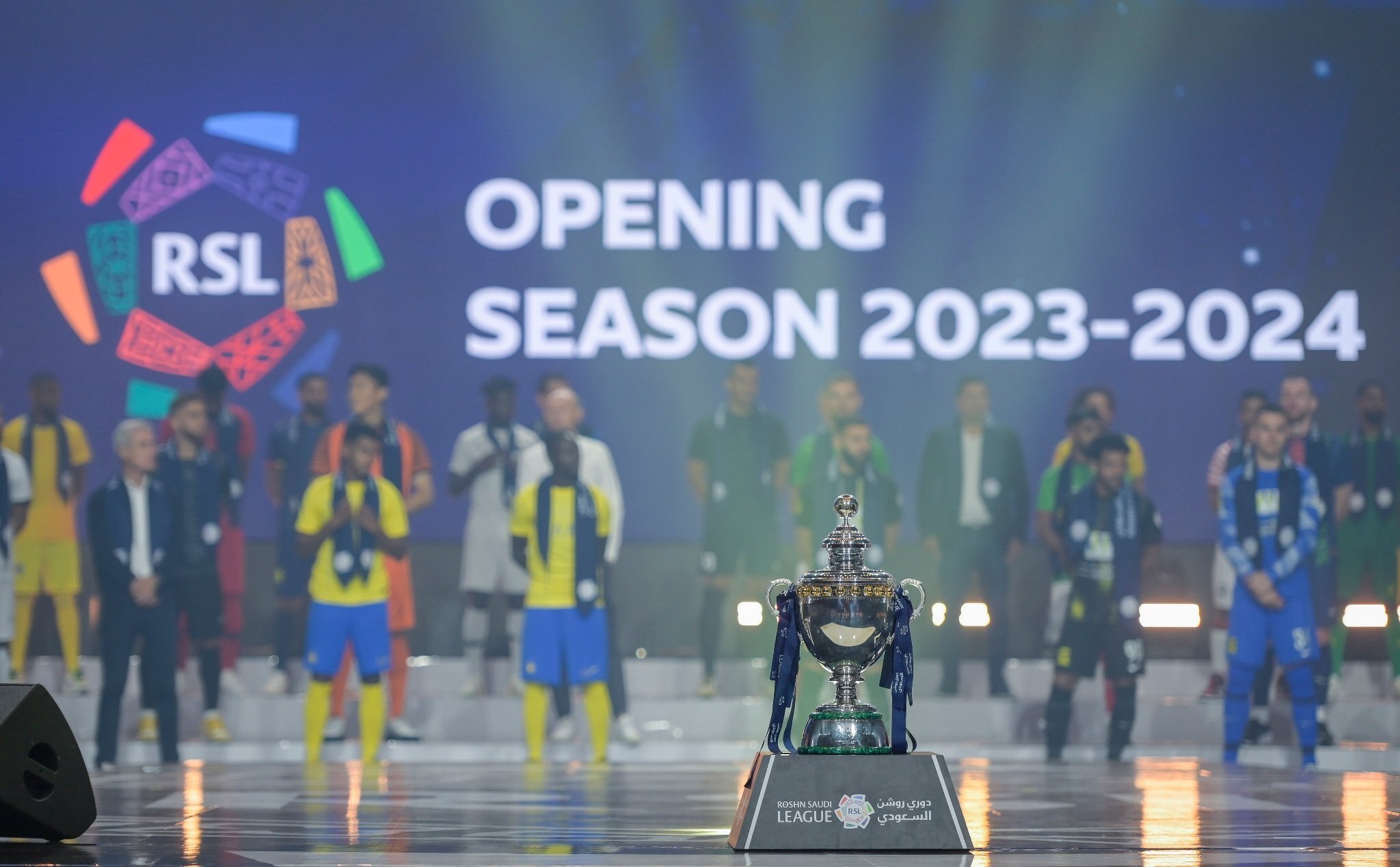Riyadh, Saudi Arabia– The Saudi Pro League kicks off on Friday amid unprecedented attention on Saudi football following a year of high-profile transfers.
Clubs in the oil-rich Gulf state have drawn global stars, with Karim Benzema, Jordan Henderson and Sadio Mane among those following in Cristiano Ronaldo’s footsteps.
Last month Al-Hilal made a 300-million-euro ($328 million) bid for Kylian Mbappe, though the Paris Saint-Germain striker reportedly refused to meet with officials from the club.
Eighteen clubs will take part in the league, with each allowed eight foreign players.
“Saudi Arabia aspires to be like the English Premier League,” said Simon Chadwick, professor of Sport and Geopolitical Economy at Skema Business School in Paris.
“The media is paying attention,” he told AFP.
“I’m aware of people now asking the question: where can I watch the Saudi Pro League?”.
Just five years after allowing its first non-Muslim tourists and letting women drive, Saudi Arabia is attempting to open up its conservative, long-cloistered society to the world.
The world’s biggest oil exporter has thrown hundreds of millions at sports deals including Ronaldo’s capture, Formula One in Jeddah and the lucrative LIV Golf tour.
It is all part of grand plans by the de facto ruler, Crown Prince Mohammed bin Salman, to modernise the Saudi economy and remove its reliance on oil before the world moves on to other fuels.
Moqbel Al-Zabni, editor-in-chief of the Saudi capital’s Al Riyadiah newspaper said that the kingdom wants “the compass of professional football to point to the Middle East and the Arab world”.
‘Changed the market’
Ronaldo’s arrival in January to play for the Riyadh-based Al-Nassr club is what first drew global attention to ongoing efforts to boost the Saudi Pro League.
The kingdom is offering eye-watering salaries that have lured celebrity players, rising stars and top coaches.
“I’ve worked in sport for 40 years and I’ve never seen a project as big, as ambitious and as determined to be a success,” British director Peter Hutton, who sits on the league’s board, told the BBC.
Manchester City manager Pep Guardiola said the Saudi league has “completely changed the market” and he expects more high-profile players to move there.
“Most of the headlines are about Saudi attracting big players, not the long prison sentences handed down to activists,” a Western diplomat in Riyadh told AFP on the condition of anonymity.
However, the kingdom still faces a series of challenges before it could rise to the helm of global football, said Egyptian sports journalist and TV host Amir Abd Elhalim.
“There are challenges at all levels,” he said, including respecting the contracts and entitlements of new players.
Last month, FIFA hit Al Nassr with a transfer ban, blocking the club from registering new players.
It was issued after Al Nassr failed to make a payment of £390,000 to Leicester City for the 2018 transfer of Nigeria striker Ahmed Musa.
Chadwick, the professor, said that Saudi football is still “very much a work in progress”.
“We’re probably looking at the next five to ten years before determining whether there is a long-term sustainable and fundamental change,” the expert added.
One test, he said, will be Saudi clubs’ performances in the Asian Champions League.
A second test will be the extent to which the Saudi Pro League can sustain long-term engagement from football fans, who fly from all the world to watch the English Premier League.
“Is it going to be the same in Saudi Arabia?” Chadwick asked.
“Are we going to see Chinese tourists heading to Riyadh or are we going to see German tourists heading together to watch football?”







